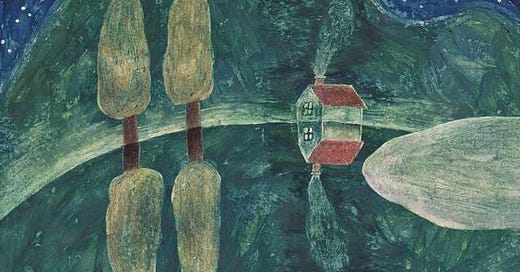(art by Yoshie Kakimoto)
The area where I live just came through Hurricane Debbie on Thursday. Along with heavy rain there were strong winds that whipped the old oaks about, so much so that it brought one down in my neighbor’s yard on her garage and nearly her house. Thankfully, she was safe. Yet while the storm raged outside, I stood there watching in a kind of awe; reminded that, despite what I might think on a daily basis, I was not in control and could do nothing to stop this.
Not that one needs a violent, raining storm to fill one with awe. Many find it with grand, great, majestic things: a sky filled with stars, an ocean, a mountain vista. It’s almost as if the definition (an overwhelming feeling of reverence, admiration, fear, etc., produced by that which is grand, sublime, extremely powerful) requires it. Something that makes us gasp or stand speechless. Something for which our words fall far short.
Awe is a word that is often connected to the transcendent or the remarkable.
I think of the poet Mary Oliver and how she writes, “Attention is our endless and proper work,” “Attention is the beginning of devotion,” and “This is the first, the wildest and the wisest thing I know: that the soul exists and is built entirely out of attentiveness.”
I think awe is born of attentiveness or awareness. Not just to those big moments or magnificent views, but of the humble, dailyness of our daily lives. Of going outside after the storm, to stomp in puddles or to breathe in that after-rain air. To hearing the sound of strong winds replaced by birdsong. Of seeing those old oaks that remain and have remained for generations.
Keep reading with a 7-day free trial
Subscribe to Begin In Wonder Substack to keep reading this post and get 7 days of free access to the full post archives.




